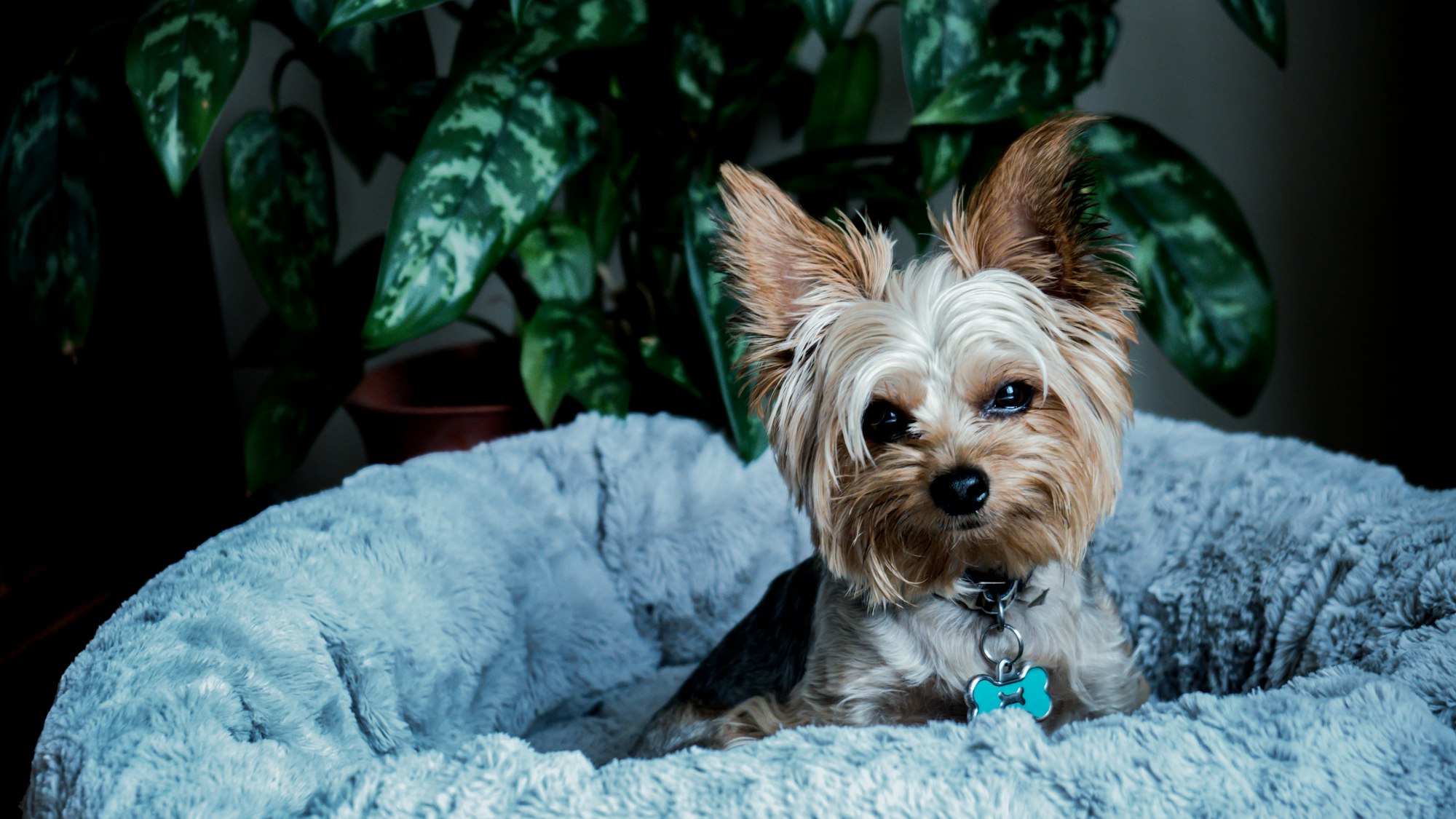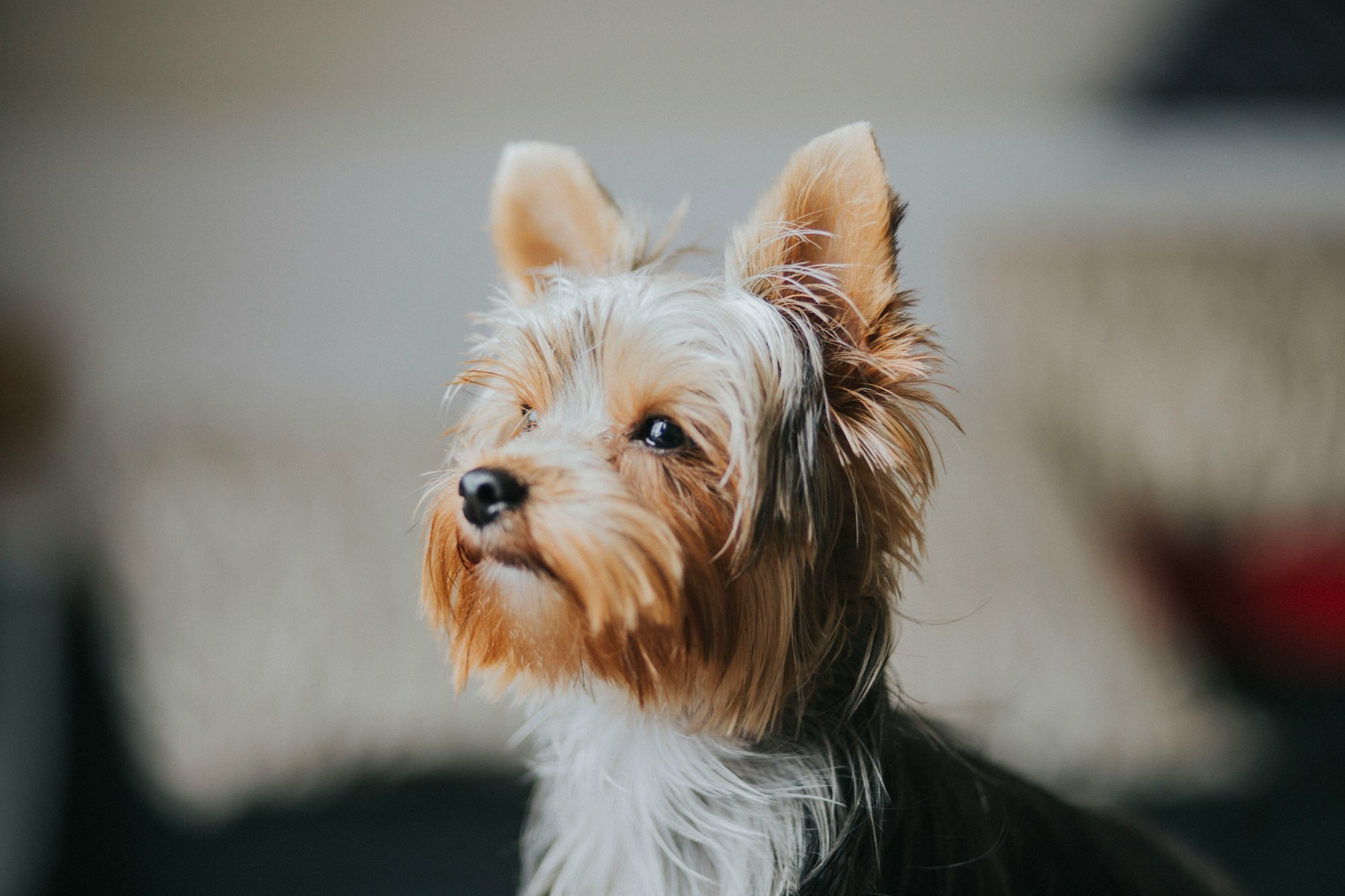According to the American Kennel Club (AKC), there are no truly hypoallergenic dogs, but some breeds are less likely to cause an allergic reaction than others.
It's not actually the dog hair that people are allergic to. It's the dead skin, or dander, that is shed with the hair that causes the trouble. There are also a couple of proteins found in the saliva of dogs that cause allergic reactions.
There are at least 16 breeds that do not shed as much as most other dogs do, and several designer breeds that have been created specifically to reduce shedding.
These dogs are often said to be hypoallergenic, but that's not 100% true. They either shed less or have coats that “catch” the shed hair instead of allowing it to drop to the floor. Even the few hairless breeds still shed some dried skin cells, as all mammals do.
Regardless, there are strategies to help you live happily with dogs—even if you suffer from allergies. We will discuss those below, but first, let's answer the question.
Are Yorkies One of the Hypoallergenic Breeds?
The AKC says they are! A Yorkshire Terrier has a long, silky coat of hair that is very similar to human hair. They don't shed year-round as many breeds do. Instead, they only shed during the seasonal changes around spring and fall. And because they have a thinner coat, there's not as much hair to be shed even then.
How Much Do Yorkies Shed?
Since their coats are similar to ours, you should brush your Yorkie every day. And just like us, there will always be a few hairs caught in the bristles of the brush. There will be a bit more in those seasonal shedding cycles, but you will not find hair all over the house every day.
Yorkies are not one of the breeds that are followed around by a cloud of loose hair all the time.

What Are the Signs That My Yorkie is Shedding Too Much?
A healthy Yorkie should not show any of the following skin or coat issues. If you notice any of these things, it's time to call your veterinarian.
- Losing a lot of hair every day.
- Bald spots and/or hot spots.
- Greasy, limp hair.
- Red and inflamed skin.
- Scabs and scratch marks on the skin.
- Dry, flaky skin.
- Hair that is brittle and breaks easily.
What Are Some Reasons My Dog Might Shed Too Much?
Your dog may have a medical reason for shedding too much. Your vet will check for those. But some other issues are much more easily changed. Let's look at those first.
Do I Groom My Dog Properly?
Even though your Yorkshire Terrier does not shed as much as other dogs, it's important to brush your pet every day. The Yorkie's long hair will get tangled, just like yours, if it's not cared for. And regular brushing helps distribute natural oils and stimulate the skin, keeping it healthy.
Your dog will also need to be bathed at least every few weeks with a gentle shampoo created just for dogs.
Is My Yorkie Getting Adequate Nutrition?
Dogs require the correct amounts of proteins, vitamins, minerals, essential amino acids, and healthy fats to stay healthy. Toy dogs have special nutritional needs. A poor coat and excessive hair loss are signs that your pet may not be getting everything it needs.
Not all commercial dog foods are good. Avoid those designer foods that are advertised as grain-free. They seem to lack important nutrients and have been linked to serious heart problems.
Your vet can help you choose a high-quality dog food that's appropriate for your dog. Feed it in the amounts and on the schedule recommended, and ask if supplements can help.

Do Dogs Get Stressed?
Have there been big changes in your routine or household recently? Things like moving to a new home, adding a new family member, or getting a new pet can cause your dog to feel stressed and anxious.
Just being aware of the stressors your dog may be dealing with can help reduce their effects. Be mindful of your reaction to your pet's stress. Change what you can, and talk to your vet about ways to help your pet deal with the permanent changes.
Does My Dog Have Parasites?
Fleas and flea bites cause intense itching, and your dog will scratch and scratch. A regular program of parasite prevention can keep you from having to deal with this problem.
Internal parasites can also affect your pet's coat and skin health. An unhealthy dog cannot maintain a beautiful coat of hair.
Some bacterial infections are parasitic and cause itching and skin lesions. Ringworm is one of them. Your vet will treat the infection with drugs, which will allow your dog's skin to heal.
Is My Dog Allergic to Something?
Like us, dogs can have allergies. One thing to look at is their food, as some contain ingredients that dogs can develop allergies to. Some animal proteins and those from corn and soy are common ones to eliminate.
They can also be allergic to environmental contaminants like dust, pollen, and chemicals. Air fresheners and essential oils can be especially problematic for small pets.
What Medical Conditions Might Cause Shedding?
Your vet will draw blood to check for common thyroid conditions that cause hair loss. Those can be treated with medications.
Cushing's disease also causes hair loss, and your vet will discuss treatment with you.
A surprising cause of excess shedding in female dogs is pregnancy. This will resolve after the pups are weaned. Ask your vet if supplements might help.

Is It Possible to Live With Allergies and Dogs?
Depending on how allergic you or a family member are, there are ways to mitigate the allergens and your response to them. You will want to consult with your healthcare professional in this case and follow their directions. Medications can alleviate mild to moderate symptoms.
You've already made a smart choice by choosing the Yorkshire Terrier for your pet. They do shed less than most dogs, and because they are so small, they produce fewer dander-allergenic proteins.
There are also some strategies to combat dog hair and dander in your home. Here are some.
1. Get Rid of Dead Hair, Dander, and Saliva
Keeping a clean house is an important part of living with allergies and pets. You can reduce the amount of hair and dander in your home by properly grooming your pet.
Removing carpets that trap dander and hair is a good way to minimize your exposure. Hard flooring is much easier to keep clean, and daily dust mopping will catch the hair and dander for easy removal.
Shake out rugs and remove pet hair from furniture frequently. Use a lint roller. A vacuum with a HEPA filter helps keep the hair and dander contained.
Don't let your dog lick your face. Wash your hands often, and wash chew toys with soap and water regularly.
2. Keep Some Spaces Private
Don't allow your Yorkie to sleep with you. Making your bedroom off-limits is an excellent way to avoid contact with hair and dander. Change into your bedclothes outside of the bedroom, and put your daytime clothing directly into the laundry basket.
3. A Puppy Cut Is the Way to Go
Even adult Yorkshire Terriers look good in a puppy cut. Short-haired dogs are easier to groom, too. Your groomer can do the routine bathing for you, too.
4. Don't Bring Outdoor Allergens Inside
You may already have left your shoes by the door and changed your clothing after going outside. When pollen counts are high, it can even make sense to shower as soon as you come inside.
Your dog can track pollen, dust, and molds, too. Take a minute to wipe off your dog's feet and fur after walks.
5. Think About Getting an Air Purifier
If you are allergic to dog hair and dander, you probably suffer from other allergies as well. An air purifier in the bedroom can be a huge help. Many are movable and can be set up wherever needed during the day.
Having Allergies Does Not Mean You Can't Have a Dog
Allergies can be a minor nuisance or a life-threatening health issue. Only you can determine if you can live with the extra work that bringing a pet into the household will entail.
If you or a loved one are seriously allergic, it will be best not to bring a Yorkie into your home. But there's much you can do to deal with lesser allergic responses, and quite a lot you can do to minimize contact with the allergens.
Management of an allergy can be an inconvenience, but dog lovers are often willing to make the adjustments necessary. Once your routine is set, it will become second nature and much less of an issue for you.
The love and companionship of a dog are well worth a little extra housekeeping. And the Yorkshire Terrier is such a lovely little dog with quite a lot of love to give. They are great family dogs with feisty terrier personalities.
At only seven pounds, with a lifespan of 11 to 15 years, a Yorkie is possibly one of the best nearly hypoallergenic dog breeds for an allergy sufferer to have. Planning ahead to minimize your contact with a little dog hair, dander, and saliva can mean that you could be able to live happily with a Yorkie in the house.
Get more expert advice on pet-parenting by visiting the Off Leash blog at TryFi.com.
TryFi's The Fi Dog Collar is a must-have for any pet parent, it's a GPS tracking collar that helps you keep tabs on your dog's location, activity, and sleep patterns, and alerts you if they escape your backyard. Try the Fi Dog Collar today!

